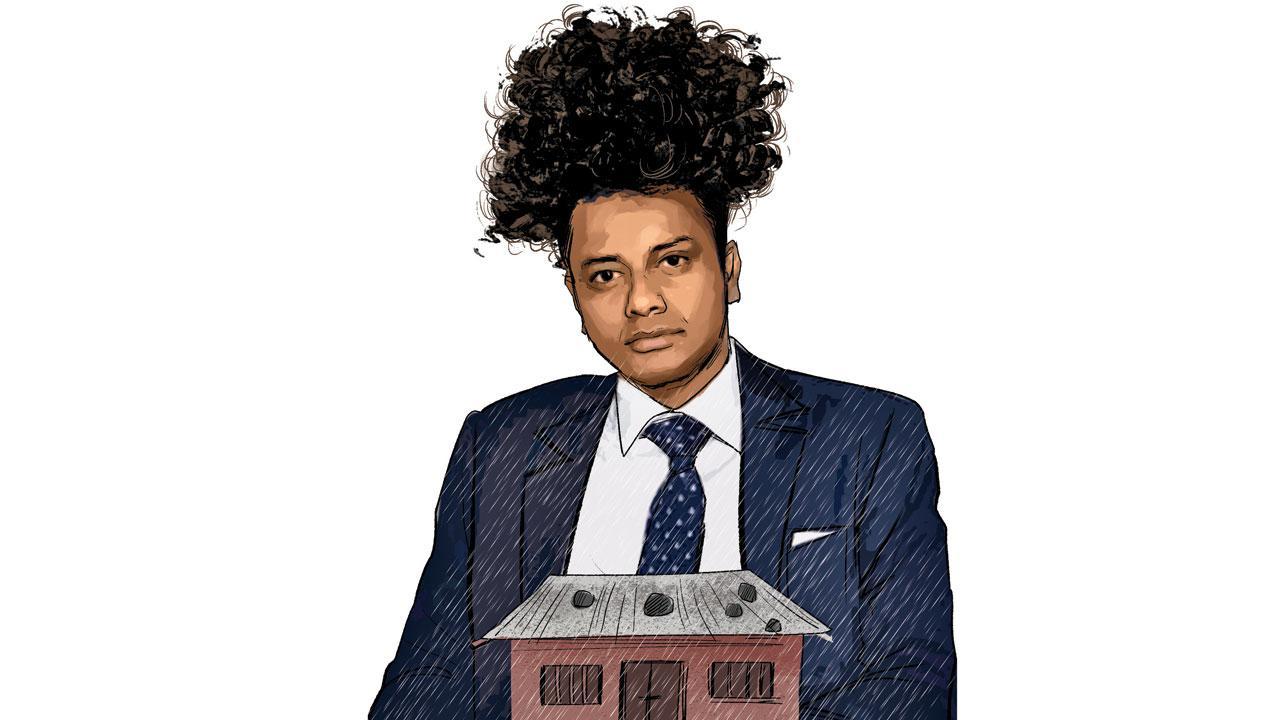One of India’s leading intellectuals, Dr Yengde is a charismatic icon, an inspiration and a force of nature

Illustration/Uday Mohite
![]() With the tragic news that Mr Armstrong, Bahujan Samaj Party head in Tamil Nadu, was hacked to death by six goons this week, it was time for me to revisit a precious book, to better understand the complex forces of caste at work, beyond dirty politics. Dr Suraj Yengde’s Caste Matters (Viking/Penguin Random House India, 2019, Rs 599). He reminds us that “by choosing to remain silent, the dominant castes effectively practise a thinly veiled ‘caste terrorism’ by pleading ‘ignorance’ over caste issues.”
With the tragic news that Mr Armstrong, Bahujan Samaj Party head in Tamil Nadu, was hacked to death by six goons this week, it was time for me to revisit a precious book, to better understand the complex forces of caste at work, beyond dirty politics. Dr Suraj Yengde’s Caste Matters (Viking/Penguin Random House India, 2019, Rs 599). He reminds us that “by choosing to remain silent, the dominant castes effectively practise a thinly veiled ‘caste terrorism’ by pleading ‘ignorance’ over caste issues.”
One of India’s leading intellectuals, Dr Yengde is a charismatic icon, an inspiration and a force of nature. Born in a slum in Nanded, Maharashtra, he worked his way up and is Shorenstein Center inaugural postdoctoral fellow with the Initiative for Institutional Anti-Racism and Accountability (IARA) at the Harvard Kennedy School. He has worked with leading organisations in London, New York and Geneva. He also features in Ava DuVernay’s film Origin, based on Isabel Wilkerson’s book Caste: The Origins of our Discontents. He is occasionally flamboyant, with his luxuriant shock of Afro hair, and when he posts photos of himself travelling business class on social media and gets trolled for it, you can clearly see how many Indians simply cannot bear to see a Dalit succeed.
Dr Yengde writes how his childhood home in Nanded was “the size of a Toyota Minibus,” and how he would share sleeping space under the cot with his father and brother. Their roof was a corrugated iron sheet that made a mighty noise when it rained, and he was surprised to know, when he stayed at a relative’s, that it had rained overnight, as they had a cement roof that rendered the rain silent.
Brahmins are primarily 3% of India’s population, yet control the majority of the lower castes in many states. And India has 300 million ‘untouchables’. Caste Matters reminds us that every week, 13 Dalits are murdered and 21 Dalit women are raped. Indeed, Dr BR Ambedkar had proposed in 1916, that the caste system has its origins in endogamy, to control the sexuality of women.
Caste Matters is a solidly researched, excellently written book that examines various aspects of contemporary caste issues, its upward mobility, leadership, Trojan horses, the future of caste and Dalit women leaders. And one of its many insights is worth repeating here is: Love is resistance. “India needs to be grateful to Dalit Love. Had it not been for Dalit Love, Dalits would have created their own vengeful organisations,” perpetuating violence, he observes, adding that Dalit history “carries rich legacies of non-violent movements.” He says it is not enough for liberal upper castes to disagree with the caste system; it calls for “the radical humanist position of being a ‘cultural suicide bomber,’ willing to blow up the oldest surviving edifice of discrimination.” Yengde notes that upper castes who taunt lower castes about “merit” do not acknowledge their own privileges, that merit is created by “cultural and social capital,” and is “an outcome” of education, income, quality schooling and more. He observes that there is no strong, all-India Dalit movement; no unity amid the 7,000 castes and sub-castes; and that over-reliance on the Constitution won’t abolish caste without addressing social justice and welfare programmes.
Wryly, Dr Yengde observes that Dalits, who have got good jobs, can also include Trojan horses--self-serving, who then distance themselves from the lower castes. He heart-breakingly describes how if a non-Dalit guest comes over, an elite Dalit removes all markers of his Dalit identity—caste gods go into the basement, books and CDs are changed, and even masalas for non-vegetarian dishes removed from the kitchen. But clearly, the poisonous tentacles of caste have spread worldwide, including in the US, where the Seattle City Council passed an anti-caste discrimination law, and the California Assembly also passed an anti-caste discrimination bill, led by Thenmozhi Soundararajan, head of Equality Labs, California, and many others.
Nonetheless, Yengde believes the Dalits are having a “Harlem moment”, referring to the Harlem renaissance, during which the arts revitalised the Black civil rights movement in the US. He refers to a cultural pushback from a range of artists, from the Dalit woman singer Kadubai Kharat, to Dalit hip-hop artist Sumeet Samos, stand up comedy and YouTube videos. “I’ll uproot the scriptures like railway tracks,” writes Sharankumar Limbale in White Paper. In fact, Chennai-based filmmaker Pa Ranjith is a major socio-cultural reformer and a force to reckon with.
Moreover, Dr Yengde has hopes for Dalit women’s movements, and quotes Roja Singh’s study of rural Dalit women in Tamil Nadu: “in their poetry and their expressions of ‘singing bodies and dancing minds,’ universalist humanist values shine through the dark chambers of societal caste pressures,” he writes. Jai Bhim! Jai Savitribai!
Meenakshi Shedde is India and South Asia Delegate to the Berlin International Film Festival, National Award-winning critic, curator to festivals worldwide and journalist.
Reach her at meenakshi.shedde@mid-day.com
 Subscribe today by clicking the link and stay updated with the latest news!" Click here!
Subscribe today by clicking the link and stay updated with the latest news!" Click here!










